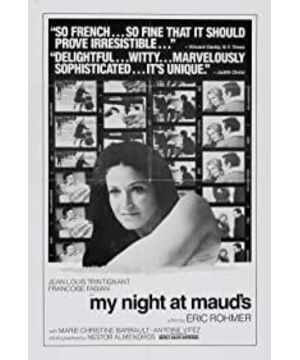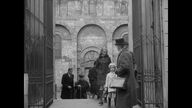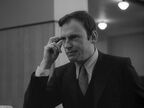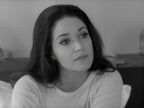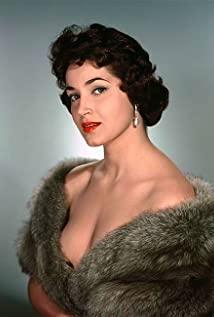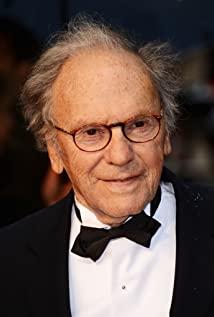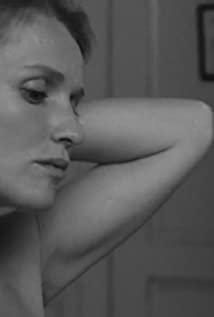explore what theological/philosophical views several characters express when talking about Pascal and Jansenism.
Rather than explaining the meaning of the film itself.
The academic level is not high, if there are mistakes, please advise.
----------------------------------------
1)
Pascal's God's Gamble used to persuade There are two key steps in human beings:
1) Only probability (possiblity) is the destiny (destination) that we can grasp.
This is the only destiny that reason can grasp.
2) Reason’s grasp of probability cannot lead to belief,
and practical action (choice) must be carried out,
even if the reason in mind grasps only probability when choosing, rather than real certainty.
To a certain extent, this choice is an abandonment of rationality.
But it is only after this choice, the practice of a religious life, that true faith arises. It is the second point that Pascal says in the passage that Louis flips through in the bookstore at
the beginning of the film : "-Choose your faith, make yourself believe like a beast or a baby, get holy water, go to dinner. " It's what I'm afraid of." "-Why be afraid, what have you to lose? You only lose passion/emotion, and that's your biggest obstacle." All Louis' rejection of Pascal begins with this passage of. "He didn't say anything" "and it didn't fit my view of Catholicism." For Louis, taking holy water, going to supper, being physically chaste, etc., were not the key to true faith .
The devout Catholic can still enjoy all the pleasing things in the world.
Love for wine, sex with certain women, etc.
In this sense, he was against Pascal.
Because what Pascal persuaded was basically an ascetic spiritual life.
He persuaded people to give up their passions, hobbies and pride (even "the love of mathematics") and
return to the "beast-like" state of innocence that came closest to God.
However, Louis did identify with this ascetic tendency to some extent.
I feel that Catholics do have to maintain a high moral standard.
(When asked if he would like to have a one-night stand with a woman, he replied that he used to have it, but not now after he converts.)
But the point is, he has always been reluctant to practice asceticism, refusing to admit that it has anything to do with true faith.
He supports both a Pascalian ascetic attitude.
It also supports an anti-Pascal hedonistic attitude.
(Vidal senses this vacillation, jokingly saying that Louis' "conversion" was hypocritical,
and then seriously "You're more of a Pascalist than I am".
Maud said more directly "I think you keep running away from the problem",
"you are ashamed of a Christian and you are ashamed of Don Juan")
This mixed attitude towards Pascal is reflected in Louis' description of his past love life:
"To me Said, every woman enhances my moral sense"
"I don't care about the quality of specific actions, I care about the quality of my whole life." "I can't be a saint, I don't have that
qualification."
He was always ambiguous about a woman's affair:
what exactly did he think "complete asceticism is wrong, and the pursuit of worldly happiness is good in itself",
Or "asceticism is right, but I'll never be able to do it, I'm always going to have passions"?
Either way, the result is the same:
He just doesn't want to take that step, to "gamble everything" as Pascal puts it.
His own justification for this is that he and Pascal have a different understanding of the Catholic faith:
his understanding of the faith can be summed up as:
"It doesn't matter what you do, it matters whether you are devout in your heart".
Whether you enjoy the happiness of the world is not directly related to whether you are religious or not.
A man who enjoys the joys and temptations of worldly life can still be a good Catholic.
The moral restraint of self is indeed what believers should fulfill.
But the focus of this restraint is on inner belief, not outer practice.
Therefore, it may be immoral to have an affair with a woman,
but it is still good if it helps you improve your inner beliefs.
2)
This leads to another important topic: how to understand "destiny"?
This concerns the first point of Pascal's wager of faith, the question of probability and destiny.
At Maud's house, Louis and Vidal had an argument based on Pascal's text.
On the surface, this debate is purely mathematical.
Louis analyzed that the mathematical premise of Pascal's belief bet is infinite (∞):
∞*a=∞ (a≠0) provides support for belief:
since the existence of God means infinite benefits,
then regardless of the probability of God's existence No matter how small, you should give up everything to gain true faith.
However, there is a special case here, ∞*0=0.
If an atheist firmly believes that the probability of salvation is zero, he still will not believe.
But then Vidal asked immediately, "You're not an atheist, so why don't you give up everything?"
Louis didn't answer directly on the spot, just arguing that
Catholicism doesn't mean "giving up all earthly pleasures."
However, from his private conversation with Maud later,
his reasoning was: I don't have to do anything on my own initiative, God has arranged everything.
Naturally everything will happen, my morals will improve little by little, my faith will be strengthened little by little.
If wine and women are worldly things, they contain uncertainty and can only be calculated by probability,
then whether they are saved or not is predestined by God and completely beyond the control of man.
There is no need for the world to choose what is destined. Everything is made by God through the hands of the world.
Pascal linked probability and destiny through gambling of faith.
The so-called fate is nothing but a calculation of infinite probability.
For Louis, however, probability is simply the mathematical possibility of the living world.
On the other hand, God predestined everything in ways unknown to man.
Therefore, probability is probability, and destiny is destiny.
People can calculate how much probability of future events will occur,
but whether it will happen in the end depends on the arrangement of God.
So in Louis' view, Pascal's persuasive wager of faith makes no sense.
People don't need to gamble on their own, because God predestined everything.
Not to choose, not to "bet", it has no effect on belief.
It is on this basis that Vidal and Maud feel that Louis is like a Jansenism:
the Jansenism holds a strong predestination,
insisting that man has no free will for good, and cannot convert himself to God by his own strength.
Grace must be given by God in order to be free from sin.
And who to give grace to is completely predetermined by God.
However, Louis himself strongly opposed the title.
He found the Jansenist views as unacceptable as Pascal's asceticism.
This is first because Pascal himself is seen as a representative of Jansenism,
but more importantly, the predestination of Jansenism leads to a corollary:
that we have no way of using any earthly standard to judge whether a person is by God or not Checked.
But Louis felt vaguely that someone like himself
"with a growing inner belief and morality"
was itself a sign of being chosen by God.
Louis' complex attitude toward predestination is the same as his complex attitude toward asceticism:
he dislikes the idea that salvation is entirely predetermined by God, and he dislikes the idea that salvation is entirely dependent on man's own efforts.
Interestingly, in a later conversation, Louis countered that Françoise was a Jansenist.
For Françoise is precisely against Louis, insisting that grace has nothing to do with the state of man's inner faith.
According to Françoise, whether I have peace of mind, whether I have no desires, or whether I have a firm belief has nothing to do with whether
I am saved or not.
But Françoise also countered that she was not a Jansenist.
Because she does not believe in destiny, but believes that people have free will and the right to choose.
(So Louis and Françoise are very interesting,
each keeping one part of the Jansenist view and rejecting the other.
Both have the opposite view, but both accept only part of the predestination.)
When Louis and Françoise argue about grace when.
Louis spoke more clearly.
He insists that he is "lucky", even when he is unlucky.
Because everything that happens is generally speaking, there is nothing that he needs to "choose" in particular,
he just accepts everything that happens and makes it helpful for his inner improvement and the strengthening of his faith.
Louis sees this state of his life as "grace" approximately.
So the gradual strengthening of Louis' belief that "in the end everything will be all right" is of
course completely contrary to the God's bet that Pascal demanded of the immediate judgment.
For Françoise, on the other hand,
grace is not based on the good deeds or goodwill of the world.
So Louis's point of view does not solve her dilemma.
She feels that her choices and decisions are important.
Human free will can affect events.
The different religious concepts of Françoise and Louis were
determined in a series of events after the two met.
(Only in the encounter, Louis was an active actor.)
Françoise, as he expected, was the one People who actively choose and contribute to events.
And Louis, as he had hoped, changed the nature of emergencies with his inner good motives.
View more about My Night at Maud's reviews


